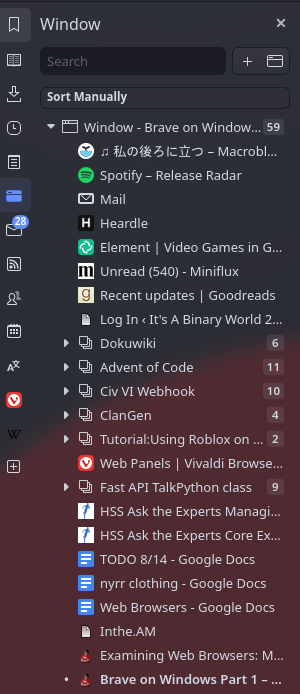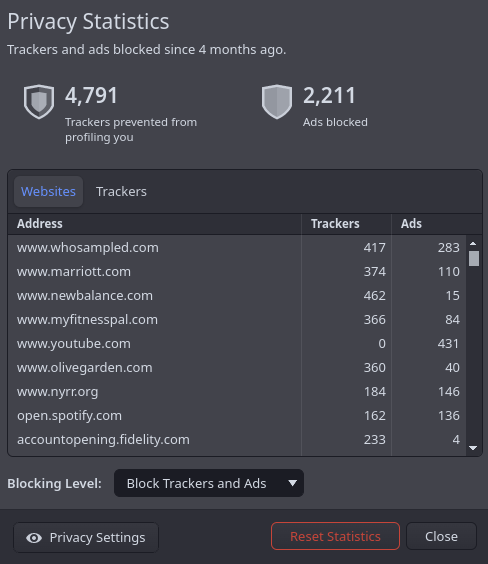Web Browsers: Linux Update; Firefox mistakes
By EricMesa
- 3 minutes read - 515 wordsIt’s been seven months since I last wrote about testing out new browsers on my computers. In addition to talking about what I’m doing, I wanted to muse about whether Mozilla really missed the mark with Firefox.
I’m going to start with the second point first. I forgot what brought them to my attention, but it turns out that while there are less browsers based on Firefox than there used to be (most of them are based on Chromium nowadays), there are at least two browsers based on Firefox that are still being developed: Waterfox and Palemoon. Waterfox is privacy-focused. They make a big deal about that on their site and FAQ. Palemoon is focused on being efficient and (it seems to me) still uses the old Firefox extensions. Why does this mean that Mozilla messed up? Well, first of all, I believe that Mozila sees Firefox as a privacy-focused browser. They may or may not have the same protections as Waterfox, but if they do, they have done a very bad job of marketing it. When it comes to Palemoon, I remember (at least according to commenters on Ars Technica) that when Firefox changed their extension format and caused all the old extensions to be deprecated, a lot of folks left for Chrome. At the time there wasn’t really much distinguishing the browsers, but getting rid of all the extensions, which are heavily used by power users, seemed like a really bad way to keep market share.
For Windows I continue to use Vivaldi whenever I do use a browser (which is almost never).
On Linux I have moved to Vivaldi as my main browser for the past few months. Vivaldi has been incredibly active in pushing out lots of great features for power users. On my laptop I use its built-in email client to check my email. On both systems I made use of Vivaldi’s stacked tabs to keep the tabs from getting too cluttered. And, I just learned, if you click on the Window panel, you can rename the tabs (to make it easier to know what the stack is).
 Vivaldi Window panel which can be used to organize and rename stacked tabs
Vivaldi Window panel which can be used to organize and rename stacked tabs
Vivaldi has also decided to take a page from Brave (as seen in my first blog post about Brave) and make sure the user understands just how many ads and trackers are being blocked. (If Firefox hasn’t started this yet, they should, especially in light of what I wrote at the top of this blog post).
![]() On the new tab page Vivaldi lets you know how many trackers and ads have been blocked
On the new tab page Vivaldi lets you know how many trackers and ads have been blocked Clicking on it lets you know all the website ads and trackers have been blocked
Clicking on it lets you know all the website ads and trackers have been blocked You can see the ads and trackers blocked on a specific page
You can see the ads and trackers blocked on a specific page
I’m not sure when I’m going to start trying out Brave on Linux, but I think that’s the next one I’m going to try out on my main computer. I didn’t use my browser enough on Windows to make Brave’s features worth it. Maybe it’ll be different for my main computer.